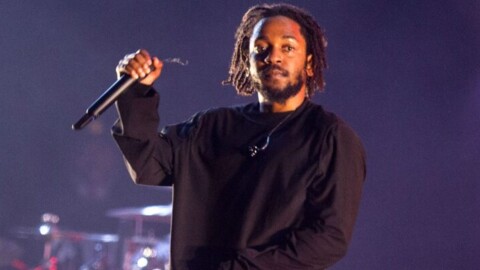Songwriters Olmo Zucca and Jackson LoMastro have filed a lawsuit in California against South African singer Tyla and her producer, Sammy SoSo Awuku, over royalty disputes related to her global hit song, Water.
The duo claims they are co-composers and co-authors of the song and argue that they are entitled to a 12.5% share of the royalties. However, according to their lawsuit, Awuku only allocated 10% to each of them, a move they deem unfair and inconsistent with industry standards.
The lawsuit not only names Awuku as a defendant but also includes Tyla and her record label, Epic Records, under whose banner the song was released and distributed. The case has sparked discussions about fair compensation in the music industry, especially when dealing with breakout international hits.
According to legal documents, Zucca and LoMastro initially sought to resolve the issue amicably in July 2023, months before Water was officially released. They claim to have approached Awuku to discuss a fair division of publishing rights, but their efforts were met with outright refusal.
Their complaint states, “Despite multiple attempts to negotiate a fair resolution before the song’s release, Awuku refused to acknowledge our rightful share or adjust the percentages accordingly.”
With no agreement reached, the duo felt compelled to take legal action. Now, as Water continues to generate massive revenue across streaming platforms, they are demanding what they believe is their rightful share of the song’s success.
The crux of their lawsuit revolves around the distribution of publishing rights. By industry standards, the four producers involved in the song—Zucca, LoMastro, Goufar, and Awuku—should each receive one-quarter of the 50% publishing share allocated to producers.
However, the lawsuit alleges that Awuku took a larger cut for himself, leaving the others with less than their fair share. “Instead of each producer getting one-quarter of 50% (i.e., 12.5%) of the music publishing royalties (which would be customary), Awuku took 15% for himself, allocated 10% to each of Zucca, LoMastro, and Goufar, and gave 5% to Christopher Alan ‘Tricky’ Stewart,” the legal filing claims.
The plaintiffs argue that this unfair allocation violates established industry norms and undermines their contributions to the song’s creation.
Court documents also shed light on how Water was created, revealing that the song’s recording sessions took place in Los Angeles between March 8 and 9, 2023. Zucca and LoMastro assert that they played a significant role in shaping the track’s sound, producing numerous audio files that were transferred to Awuku’s computer and ultimately used in the final master recording.
They contend that their creative input was substantial enough to warrant equal top-line producer credit, which they have yet to receive. “Each of the four producers made essential contributions to the final version of Water, and as such, they should receive equal recognition and compensation,” the lawsuit argues.
Their claim goes beyond financial compensation; they are also fighting for proper acknowledgment of their artistic work.
Despite the ongoing legal battle, Water has cemented Tyla’s place as a global music phenomenon. The song’s massive commercial success has propelled her career to new heights, earning her the inaugural Grammy Award for Best African Music Performance—a historic win that positioned her as one of the most prominent new African artists.
Beyond the Grammys, Water also brought home prestigious accolades from the MTV VMAs, MTV EMAs, BET Awards, and American Music Awards. It dominated the 2024 award season, further solidifying its impact on the international music scene. However, as the song continues to break records, the unresolved disputes over royalties cast a shadow over its achievements.
Adding to its already impressive milestones, Water became the first song by an African female lead artist to surpass one billion streams on Spotify—a groundbreaking feat that underscores its global appeal. The song’s accompanying music video has also amassed over 303 million views on YouTube, further cementing its cultural significance.
While Tyla basks in the glory of these achievements, the legal battle surrounding the song raises important questions about the rights of contributing producers and songwriters in the ever-evolving music industry.
As the case unfolds, its outcome could set a precedent for how collaborative songwriting and production credits are handled in the future, particularly for African artists breaking into the international music scene.










